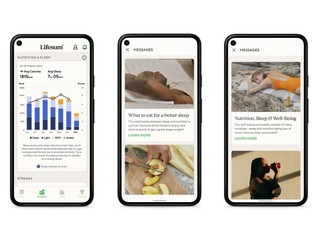
OpenAI and Color Health partner on AI-cancer screenings
Color is using GPT-4o to identify missing diagnostics and create tailored workup plans
 Population health technology company Color Health works with health systems, employers, researchers, physicians and national health initiatives around the globe to drive positive health outcomes, providing them with technology and infrastructure to power large-scale health initiatives.
Population health technology company Color Health works with health systems, employers, researchers, physicians and national health initiatives around the globe to drive positive health outcomes, providing them with technology and infrastructure to power large-scale health initiatives.
One of its key areas of focus has been on cancer, including a partnership with the American Cancer Society, beginning in 2023, on the Cancer Prevention and Screening Program to tackle the challenges patients face in finding the appropriate care and support they needs during their cancer journey.
On Monday, Color announced another collaboration in the cancer space, this time with artificial intelligence research organization OpenAI, to accelerate access to treatment through the use of GPT-4o, a multimodal generative pre-trained transformer, to identify missing diagnostics and create tailored workup plans.
The idea is to enable healthcare providers to make evidence-based decisions about cancer screening and treatment, helping them create customized, comprehensive plans.
"An idea that has been at the heart of Color’s work since its founding is that technology can improve access and immediacy to critical health information and services. We view the AI revolution we are currently living through as being the single biggest opportunity to deliver on this idea," Othman Laraki, CEO of Color Health, wrote in a blog post.
"Today, we share Color’s copilot, the result of a partnership with OpenAI, where we use GPT-4o to bring the expertise of highly trained oncologists to support doctors, nurses, and primary care physicians in making evidence-based decisions about cancer screening and treatment for their patients."
The copilot application extracts, processes, and normalizes patient information, such as family history and individual risk factors, along with clinical guidelines and data. Using this data, it answers questions that include, “What screenings should the patient be doing?” to identify missing diagnostics and generate a personalized screening plan. It also generates documentation required to complete any diagnostic workups, such as medical necessity documents and insurance pre-authorizations.
The copilot application’s output is analyzed by a clinician at every step who can, if necessary, modify it before presenting it to the patient. Once they're satisfied with the result, they can add the information to the patient’s existing treatment plan.
'One of the surprising and frustrating steps (both for patients and doctors) is that before a doctor can initiate treatment, they often need to complete what is called a pre-treatment workup. Based on the type of cancer, patient history, and other case specific factors, different tests may be necessary to inform the doctor’s recommendations for treatment," Laraki wrote.
"However – in most cases – once someone is referred to an oncologist, she waits for days or weeks for the first appointment, only to be then told that a set of additional tests are necessary to inform the treatment decision. This results in weeks being lost, multiple unproductive appointments for oncologists, and doctors being forced to make treatment decisions with incomplete information to avoid losing even more time."
Color has already started an initial phase-in for its own clinicians, applying the tool to a limited number of cases; so far, healthcare providers have been able to identify 4x more missing labs, imaging, or biopsy and pathology results than those without the copilot. In addition, the copilot allows clinicians to analyze patient records and identify gaps in 5 minutes, rather than the weeks it normally takes.
The ultimate goal is to catch cancers as early as possible: over a third of Color’s patients require earlier, different screening approaches based on individual risk factors not addressed by standard guidelines, and even a four week delay in treatment can result in a 6–13% higher risk of mortality.
"While there is no silver bullet to catch all cancers early, we have a myriad of screening tools that have been validated and based on which risk-adjusted guidelines have been developed over the years. For example, today, a woman with a BRCA1 mutation which increases her risk of breast cancer can dramatically reduce the odds she will die from cancer by following screening guidelines that are adjusted to her risk level," wrote Laraki.
"The challenge arises from the fact that despite the presence of guidelines, the vast majority of women with elevated risk do not receive risk-adjusted guidelines. This happens either because they don’t see a doctor or their doctor does not have the time / background to adjust her screening appropriately."
Color and OpenAI have been working together since 2023, with the goal of using AI to improve cancer patient care and health equity. Color initially began testing the performance of GPT-4 and GPT-4o in complex tasks, such as extracting information from PDFs of clinical guidelines for cancer diagnosis, which are often made up of hundreds of pages of complicated diagrams that outline care paths based on diagnostic workup; together, they developed a method of asking GPT-4 Vision to describe screenshots of these diagrams that was most effective in maintaining output accuracy.
To measure the impact of the new tool, Color is partnering with the University of California, San Francisco Helen Diller Family Comprehensive Cancer Center (UCSF HDFCCC). For the initial implementation, Color and UCSF will conduct a retrospective evaluation, followed by a targeted rollout; through the second half of 2024, Color intends to use the copilot application to provide AI-generated personalized care plans, with physician oversight, for over 200,000 patients.
(Image source: openai.com)
Related News




